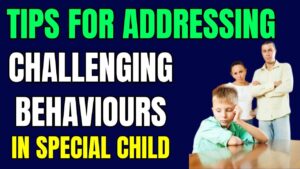Parenting is a journey that demands empathy, patience, and adaptability. When a child is diagnosed with autism spectrum disorder (ASD), this journey takes a unique turn, requiring parents to approach their role with an even greater level of understanding and support. Autism parenting is an intricate process that involves advocating for your child, fostering their development, and creating a nurturing environment that enables them to thrive. In this blog post, we will delve into the world of autism parenting and support, exploring essential strategies, resources, and perspectives that can empower families on this journey.
Understanding Autism Spectrum Disorder
Autism is a complex neurological condition that impacts an individual’s social communication, behavior, and sensory processing. ASD is often referred to as a “spectrum” because it encompasses a wide range of abilities and challenges. It’s crucial for parents to recognize that every child with autism is unique, and their strengths and difficulties may vary significantly. A thorough understanding of the characteristics of autism is the foundation for effective parenting and support.
Sensory Sensitivities and Management
Many individuals with autism experience sensory sensitivities, where certain sounds, textures, or environments can be overwhelming. Understanding your child’s sensory preferences and triggers is fundamental. Creating sensory-friendly spaces at home, using sensory tools like fidget toys or noise-canceling headphones, and incorporating sensory activities can help children regulate their sensory experiences.

Effective Communication Strategies
Children with autism may face difficulties in verbal and nonverbal communication. As a parent, learning effective communication strategies is vital. Visual supports, augmentative and alternative communication (AAC) tools, and social stories are some techniques that can enhance communication. Creating a communication-rich environment that promotes understanding and minimizes frustration is a key aspect of autism parenting.
Early Intervention and Therapies
Early intervention is a cornerstone of effective autism parenting. Research has shown that early diagnosis and intervention can significantly improve a child’s developmental trajectory. Applied Behavior Analysis (ABA), speech therapy, occupational therapy, and sensory integration therapy are among the many interventions that can help children with ASD develop essential skills and address challenges. Collaborating with professionals to create an individualized intervention plan tailored to the child’s needs is crucial.
Building a Support Network
Autism parenting can be both rewarding and demanding. Establishing a strong support network is essential for parents to navigate challenges and celebrate successes. This network may include family members, friends, therapists, educators, and support groups. Connecting with other parents who are on a similar journey can provide a sense of community and shared understanding, which can be incredibly comforting and empowering.
Advocacy and Education
Parents of children with autism often find themselves advocating for their child’s needs in various settings, including schools, medical appointments, and community activities. It’s essential to educate yourself about your child’s rights and the resources available to support them. Collaborating with educators to develop Individualized Education Programs (IEPs) that cater to your child’s strengths and challenges can ensure their academic success.
Promoting Independence and Life Skills
While providing continuous support, it’s important to foster your child’s independence and life skills. Teaching daily routines, self-care activities, and social skills can empower your child to become more self-sufficient. Recognizing and celebrating small achievements along the way contributes to building their self-confidence.

Caring for Yourself
Amid the demands of autism parenting, it’s crucial not to neglect your own well-being. Taking breaks, seeking respite care, engaging in hobbies, and practicing self-care are vital to preventing burnout. When parents are emotionally and physically well, they can provide better support to their children.
Resources and Support Organizations
Numerous resources and support organizations are available to aid autism parenting. Autism Speaks, The Autism Society, and local autism support groups offer a wealth of information, workshops, and community connections. Online platforms and forums allow parents to share experiences, seek advice, and find solace in the company of others who understand their journey.
Balancing Challenges and Celebrating Achievements:
Parenting a child with autism can have its ups and downs. Celebrating small achievements and milestones and maintaining a positive outlook can help parents navigate the challenges with resilience.
Utilizing Technology and Resources:
There are numerous apps, assistive technologies, and resources specifically designed to support individuals with autism and their families. These tools can aid in communication, learning, and skill development.
Recognizing and Embracing Neurodiversity:
Promoting a positive attitude towards neurodiversity, where differences are celebrated and respected, can create a more inclusive and accepting environment for individuals with autism and their families.
How can parents support their autistic child?
Supporting an autistic child requires patience, understanding, and a tailored approach that considers the child’s individual strengths and challenges. Here are some strategies that parents can use to provide effective support:
1. Educate Yourself: Learn about autism spectrum disorder (ASD) to understand its characteristics, challenges, and strengths. This knowledge will enable you to better support your child’s needs.
2. Create a Structured Environment: Many autistic children thrive in structured environments. Establish routines and schedules that provide predictability, as this can help reduce anxiety and improve their sense of control.
3. Effective Communication: Use clear and concise language when communicating with your child. Be patient and give them time to process information. Some children with ASD may benefit from visual supports like picture schedules or communication boards.
4. Encourage Self-Expression: Support your child’s unique ways of self-expression. This might include using alternative communication methods like gestures, sign language, or augmentative and alternative communication (AAC) devices.
5. Sensory Sensitivities: Recognize your child’s sensory sensitivities and provide sensory-friendly environments. This may involve minimizing overwhelming stimuli and offering sensory tools like fidget toys or noise-cancelling headphones.
6. Promote Social Skills: Help your child develop social skills by teaching them about emotions, appropriate social interactions, and the nuances of nonverbal communication. Role-playing and social stories can be effective teaching tools.
7. Celebrate Small Achievements: Acknowledge and celebrate even the smallest accomplishments. Positive reinforcement can motivate your child and boost their self-esteem.
8. Individualized Education Plan (IEP): Work with your child’s school to develop an Individualized Education Plan that outlines specific goals, accommodations, and support services. Regular communication with teachers is essential to ensure your child’s educational needs are met.
9. Encourage Special Interests: Many autistic children have intense interests in specific subjects. Encouraging and engaging with these interests can provide them with a sense of joy and accomplishment.
10. Teach Problem-Solving Skills: Help your child develop problem-solving and coping skills. Teaching them how to manage frustration and anxiety can empower them to navigate challenges more effectively.
11. Seek Professional Help: Collaborate with medical professionals, therapists, and educators who specialize in autism. Their expertise can guide you in providing the most effective interventions and strategies.
12. Practice Patience and Empathy: Autism parenting can be challenging at times. Practice patience, empathy, and understanding, especially during moments of difficulty. Remember that your child is doing their best.
13. Balance Independence and Support: Encourage your child to develop independence while providing the necessary support. Gradually introduce tasks and skills that promote self-sufficiency.
14. Involve Siblings: If you have other children, involve them in understanding and supporting their autistic sibling. Educate them about autism to foster empathy and reduce any potential misunderstandings.
15. Take Care of Yourself: Parenting a child with autism can be demanding. Prioritize self-care and seek support from friends, family, or support groups to prevent burnout.
Tips for Parenting a Autistic Child
Here are some tips for parenting an autistic child! Let’s expand on each of them to provide a deeper understanding:
1. Focus on the Positive:
Celebrate your child’s strengths and achievements, no matter how small they may seem. Positive reinforcement can be a powerful motivator and boost their self-esteem. Embrace their unique qualities and interests, and encourage their passions to help them develop a strong sense of identity.
2. Stay Consistent and on Schedule:
Autistic children often thrive on routine and predictability. Establishing consistent daily routines can provide a sense of security and help them better navigate their environment. Changes in routine can be distressing, so when modifications are necessary, provide ample preparation and transition time.
3. Give It Time:
Progress might not always be immediate or linear. Be patient and allow your child the time they need to develop new skills and adjust to different situations. Celebrate incremental improvements and understand that setbacks are a natural part of the journey.
4. Cut Your Stress:
Parenting any child can be stressful, and parenting an autistic child comes with unique challenges. Prioritize self-care to manage your stress levels effectively. Engage in activities that bring you joy, practice mindfulness, and consider seeking support from friends, family, or support groups.
5. Get Balance in Your Life:
Balancing the demands of parenting with other aspects of your life is essential. Allocate time for your own interests, hobbies, and relationships. This not only supports your well-being but also sets a positive example for your child on how to maintain a balanced lifestyle.
Conclusion
Autism parenting is a journey filled with growth, learning, and love. By embracing your child’s uniqueness, seeking out appropriate interventions, building a support network, and advocating for their needs, you can create an environment that nurtures their development and helps them achieve their potential. Remember that each milestone, no matter how small, is a triumph worth celebrating. With dedication, patience, and understanding, you can provide the unwavering support that empowers your child with autism to thrive and lead a fulfilling life.





